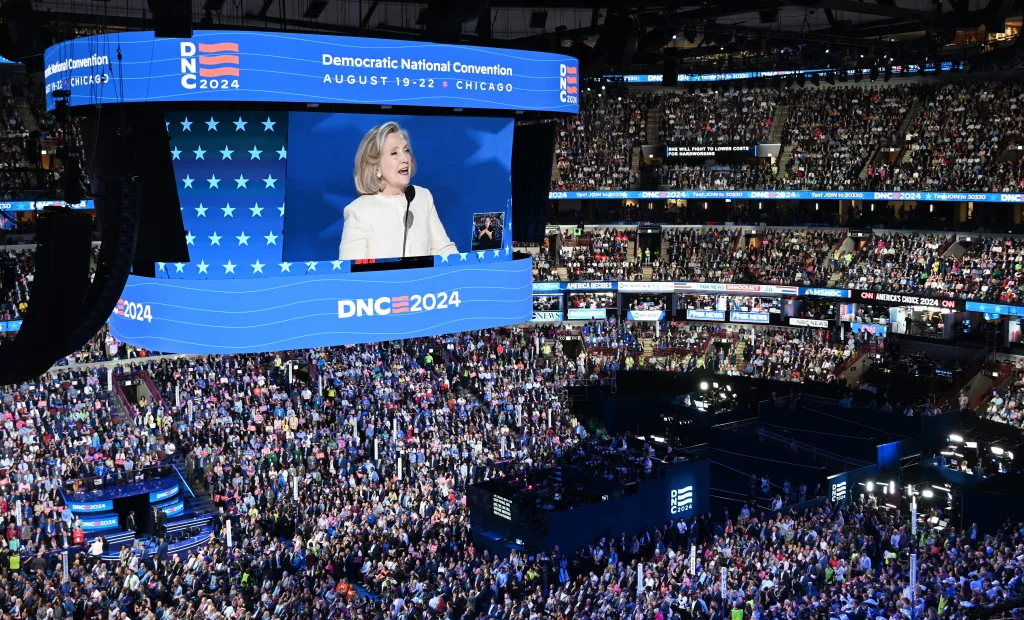As the 2024 election approaches in just three months, thousands of supporters have flocked to Chicago for the Democratic National Convention, which kicked off with significant events and high-profile speakers. This week, the convention is being held at the United Center Arena, where Vice President Kamala Harris is the focal point of the party’s gathering.
The convention began on Monday with a powerful prime-time address from President Joe Biden. His speech, marked by emotional moments and enthusiastic applause, set the tone for the week. On Tuesday, the event featured the ceremonial roll call vote, in which state delegations officially endorsed the Harris-Walz ticket. The evening concluded with stirring speeches from former President Barack Obama and former First Lady Michelle Obama, celebrating the party’s vision and leadership.
With President Biden having withdrawn from the race, Vice President Harris has been confirmed as the Democratic nominee for the 2024 presidential election. The roll call vote on Tuesday was largely symbolic, highlighted by performances from celebrities like rapper Lil Jon.
Wednesday’s program includes a notable lineup of Democratic leaders. Minnesota Governor Tim Walz, the party’s nominee for vice president, is set to deliver a key speech. The evening will also feature addresses from rising stars in the party, including Pennsylvania Governor Josh Shapiro, Maryland Governor Wes Moore, and Transportation Secretary Pete Buttigieg. Additionally, former President Bill Clinton, former Speaker of the House Nancy Pelosi, and House Minority Leader Hakeem Jeffries are scheduled to speak.
Senators Cory Booker of New Jersey, Chris Murphy of Connecticut, Catherine Cortez Masto of Nevada, and Amy Klobuchar of Minnesota will also take the stage. Two Democratic governors, Shapiro and Moore, representing the new generation of party leadership, are expected to play prominent roles. The night will also include remarks from Olivia Troye, a former Trump administration official, and Geoff Duncan, the former lieutenant governor of Georgia.
The convention’s final and most anticipated event will occur on Thursday, when Vice President Harris will formally accept the presidential nomination. Her speech, themed “For the Future,” is expected to be a highlight of the convention.
Despite some delays on Monday, DNC organizers have adjusted the schedule to ensure a smooth flow of events. The convention is a crucial moment for the Democratic Party as it gears up for the upcoming election, showcasing its leadership and setting the stage for the campaign ahead.


